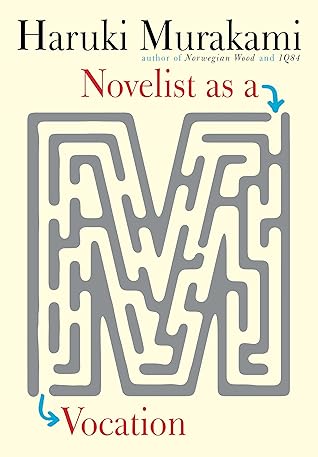More on this book
Community
Kindle Notes & Highlights
Writing novels is, to my way of thinking, basically a very uncool enterprise.
It is time-consuming, tedious work.
(Not being able to “take it easy” seems to form the leitmotif of my life!)
It was as if the words were coming through my body instead of from my head. Sustaining the rhythm, finding the coolest chords, trusting in the power of improvisation—it was tremendously exciting.
Like so many things in my life, events seemed to follow their own course, pulling me along. Luck played a big part, too.
When Paul Valéry was interviewing Albert Einstein, he asked the great scientist, “Do you carry a notebook around to record your ideas?” Einstein was an unflappable man, but this question clearly unnerved him. “No,” he answered. “There’s no need for that. You see I rarely have new ideas.”
James Joyce put it most succinctly when he said, “Imagination is memory.” I tend to agree with him.
In Steven Soderbergh’s film Kafka, Jeremy Irons, in the lead role, sneaks into a creepy castle (based, of course, on The Castle)
Two principles guided me. The first was to omit all explanations. Instead, I would toss a variety of fragments—episodes, images, scenes, phrases—into that container called the novel and then try to join them together in a three-dimensional way. Second, I would try to make those connections in a space set entirely apart from conventional logic and literary clichés. This was my basic scheme. More
The first step in my novel-writing process is, metaphorically, to clean off my desk.
Unless something really extraordinary comes along, all new projects are turned down.
Isak Dinesen once said, “I write a little every day, without hope and without despair.”
No time is better spent than the time I spend rewriting, and nothing is more fun.
The time spent working on a long novel is important, to be sure, but time spent doing nothing is no less so.
Wherever a person is when he writes a novel, it’s a closed room, a portable study.
once a novelist sits down to write a novel he’s utterly alone with the task.
Novelists basically tell stories. And telling stories, to put it another way, means delving deep down into your unconscious.
When it came to books, I greedily devoured a wide range, like I was busily shoveling coal into a blazing furnace.
if the only people you put in your novels are the kind you like, ones you’re interested in or can easily understand, then your novels, ultimately, will lack a certain expansiveness.
It goes without saying that characters are a critical element in novels. The novelist has to put characters in his novel that have a sense of reality, yet are interesting and speak and act in ways that are a bit unpredictable, and make them a central, or close to central, part of it. A novel with predictable characters who only say and do predictable things isn’t going to attract many readers.
what’s more important is the question of how far the novel’s characters advance the story. Of course it’s the writer who creates the characters; but characters who are—in a real sense—alive will eventually break free of the writer’s control and begin to act independently.
When a novel is on the right track, characters take on a life of their own, the story moves forward by itself, and a very happy situation evolves whereby the novelist just ends up writing down what he sees happening in front of him.
Colorless Tsukuru Tazaki and His Years of Pilgrimage is a work that holds no small significance for me.
On a formal level it’s a realistic novel; yet I find that there are all sorts of intricate, metaphorical things going on below the surface.
What I want to say is that in a certain sense, while the novelist is creating a novel, he is simultaneously being created by the novel as well.
there still seems so much I need to learn about the characters in my novels. And at the same time there seems to be so much I need to learn from the characters in my novels. In the future, I want my novels to bring to life all kinds of weird, eccentric, and colorful characters. Whenever I begin writing a new novel, I get excited, wondering what kind of people I’m going to meet next.
Abraham Lincoln’s famous saying “You can fool all the people some of the time, and some of the people all the time, but you cannot fool all the people all the time” can


